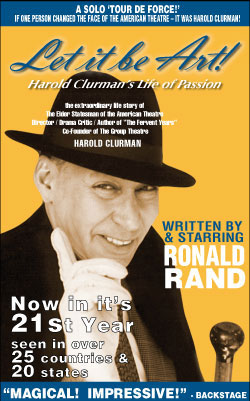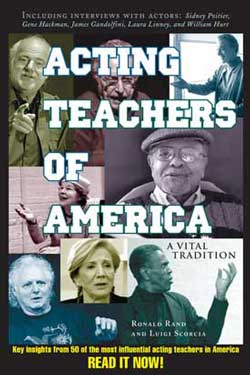Eddie Martin
Singer/songwriter and producer, Mr. Martin’s first album was “Untethered.” He is the lead singer of “The Wildwood Ruminators,” a new group emanating from the fertile musical soil of the Muscle Shoals, Alabama area. The Wildwood Ruminators trio is comprised Tony Lee, formerly of the celebrated Celtic band, Full Moon Ensemble, singer/songwriter and drummer Malcolm Singleton, bass player, Bill Williams and John Jackson, leader of the pop/punk band, Jessica’s Mistake. Guest musicians on their second album included keyboardist Kelvin Wooten, banjo player Scooter Muse, percussionist, Daniel Beard and guitarist Barry Billings. Their albums include “The Wildwood Ruminators,” “Elemental,” and “Revelation.” Mr. Martin produced a version of the song “I’m Gone” for a local female artist, which won the Best of Showcase Series award from the Songwriter’s Hall of Fame National Academy of Popular Music.

Eddie Martin and the Wildwood Ruminators
How young were you when you began singing and when did you start writing songs?
Okay. I can remember writing as far back as the second or third grade. I didn’t specifically try to be songwriter and didn’t pursue it until I was probably nineteen or twenty. I didn’t realize until I got older, that especially on my Mom’s side, that there were lots of cousins and grand aunts and uncles, and generations before who sang; I knew somewhat of this tradition of singing. I also didn’t realize that they had also written songs as well. When my Mom died a year ago, I found snippets of words which my grandparents had written in little books. There were all these interesting wording and phrases.
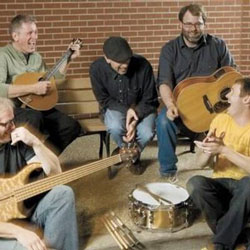 I think it all comes from a Scot-Irish tradition – the language skill, especially the way the Irish have of turning phrases, of melodic syllables and the movement of words. I guess in some way, it got in me. I didn’t know it for a while, I didn’t have the hands my cousins have in playing the guitar. And one of my cousins is an actor and has made over fifty films.
I think it all comes from a Scot-Irish tradition – the language skill, especially the way the Irish have of turning phrases, of melodic syllables and the movement of words. I guess in some way, it got in me. I didn’t know it for a while, I didn’t have the hands my cousins have in playing the guitar. And one of my cousins is an actor and has made over fifty films.
Who were artists that inspired you growing up?
The thing that got me initially as a small child, was that I was pretty much exposed to country music, church music, folk and some extent jazzish stuff like Nat King Cole. My parents also liked the Big Band music.
Stevie Wonder was a big influence. When I first heard him sing, “Superstition” – well, when I heard that, I thought: What is that!” I just didn’t know what to make of it. I could hear there was a lot going on in it and it wasn’t just the rhythm.
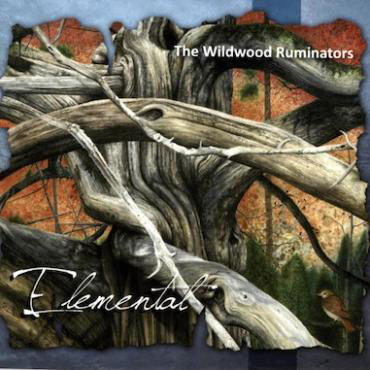
I’m a ‘word guy,’ and words have always been important to me. I guess it’s part of the Irish thing, and I also had a big speech impediment when I was younger which made me work hard to pronounce words, I became very aware at an early age how to speak and listen and make sure I was speaking clearly. I had to try so hard as a little boy to be understood. I know I’ll never lose my Southern accent and I have no desire to. I want to speak in a way that expresses who I am.
Somehow I knew I kind of wanted to go into writing music. I had been a huge music fan, and gravitated to more of the singer/song writers like Bob Dylan, Jackson Browne, Carole King, performers like Stevie Wonder. In country music, there was Merle Haggard, people like that that informed me. My dad was a country music lover, and was attracted to those kind of authentic people who generated heartfelt music. I fell in love with Stevie Wonder, and was turned on to James Taylor and Jackson Browne. That became my confluence of music if I have to pick out an influence.
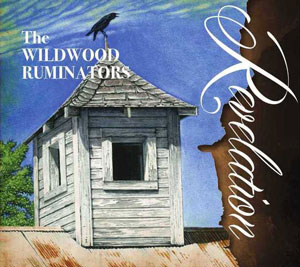
You’re from this area – and the northern Alabama and Muscle Shoals area has been so rich in music and creativity – is there something ‘in the water’ or how would you describe so much creativity and music coming from here?
I’m actually from a small town nearby – Russellville – over in the next country, within twenty miles of Muscle Shoals. Now Rick Hall at Fame Studios, he came from Franklin County where he grew up. There’s actually a large Franklin County influence on the Muscle Shoals area. There is something to be said, going all the way back to the Native Americans. The tribes were known to be language oriented, and musically oriented; they one of the most literate of the American Native tribes, and the was also a heavy influx of Scottish and Irish immigrants who came here. My folks came here prior to the American Revolution, and of those Irish people came to the South through Charleston and Savannah from Boston and New York. There’s no denying the Celtic tradition played a large influence and the indigenous people were extremely musical. Yes, it’s in the water, it’s in the mud, it’s in everything here.
As you’ve gone along creating music, what kinds of lessons have you learned about writing and performing?
Well honestly, I haven’t ever been considered a live performer except for the last five years. I’d have to be dragged on the stage because of my nerve. It’s been my impetus in the last five years after the formation of the group. I feel I’m really a part of the group as proposed to being a solo performer.

Eddie Martin and the Wildwood Ruminators
As far as the writing’s gone, for a long time the main lessons have carried over in the performances. You have to be honest in your writing, and in your performance. As a singer/songwriter I am not inhabiting another character like you do but I am exposing different aspects of what I consider the human character and it comes out of my own expression. I’m also not interpreting someone else’s work; it’s my own. But we’re a band performing together other than occasionally covering for someone else. What we do comes out of combination of us, or one or two of us. It’s a holistic thing; we try to be true to the song because the material is eclectic.
How did the band, “The Wildwood Ruminators,” come about and how do you work with one another?
It was Cary Gilbert. I grew up with Cary, and I was friends with Tony Lee and one night I get a phone call. Cary says: “What are you doing? I’m over at Tony’s house, come on over and hang out.” I had been a fan of Tony and his work and I’d go to hear Cary and Tony play.
I said: “Yeah, I’d love to hang out.” I was about to hang up but quickly asked: Where does Tony live?” Well, I went and pretty quickly we were all talking, and the conversation ended up in being a solo album that he recorded, and I produced it. I had sort of encouraged him to record that night, and he asked me to produce it. Cary knew there was a common thread between us, that we would latch on to that common thread. We both love good music, and that goes back to the writing and honesty.
If there’s one thing that needs to be written I follow the path and if it’s begging to be put down, I will. If it needs to be jazzy or down and dirty, I’ll pick around and morph it into something and that’s how we’ve written together, Tony and I. Actually the first song on the CD, he and I wrote together.
And John joined us because I posted on Facebook I needed a lead guitarist who could learn and play original music and John responded. We had actually known each other since we were in high school. He was a theater student and we knew each other. I would help out with some of the productions. I knew he was talented and had been in a pump band. John had also grown up in Russellville as well and we’ve got some of his family in my family; going back generations. Well, we gave it a shot.
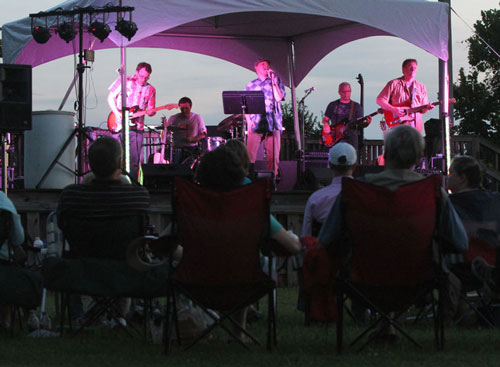
Eddie Martin and the Wildwood Ruminators
Your debut album was recorded, mixed and mastered by Daniel Beard, your longtime creative partner. How did the two of you find one another?
We have known one another and have worked together for seventeen years. I had a writing deal at Fame Studios and that deal had ended, and I just decided to be completely independent. That was the time Daniel had started working as an intern house engineer and an assistant to Rick Hall. I still go and record at Fame Studios now. Well, Daniel and I sort of got put together and got along well and if you can have a positive working experience, if there’s a positive, supportive, respectful vibe then it works. And over the years it’s turned into a deep relationship. He’s so good at what he does, and over the years we’ve developed a short hand to communicate when we’re recording together.
On the album there are such songs as “I Used to Love Purple” “Bare Bones” and “I Still Pray for You.” Did these songs come from very personal experiences?
They did. With “Bare Bones, in an interesting way it’s odd how that happened. We were a trio at Tony’s house, and I kind of took a break, and the guys were grooving, playing together as guitar players do. So they were grooving on those changes, and John came up with a lead line, and I have a zoom recorder which you can hold in your hand. It’s got a stereo mike which records digitally. I recorded what they were playing for about three or four minutes and you just never know what will come.
I took it home and I started to just look through some of my old notebooks. I would find lines here and there, and I starting compiling. It wasn’t written as a piece start to finish or lyrically and I’d look at some of those little magnets I had on my fridge and they’re almost like lines, so I’d find something there which I had never used. And I came up with about four or five pages. I went back through and edited and came up with a cohesive idea from the start to finish.
With “I Used to Love Purple” and “I Still Pray for You” – they’re very personal songs, intention songs. “Purple” actually came by way of a security question from a credit card company which asked: What is your favorite color? The answer was purple. But life had changed that color, because for me, it was associated with a relationship. So I knew it was no longer my favorite color any longer. With “Pray for you,” I had hoped I could get to the point where I didn’t where there wasn’t any longer any bitterness, no lingering personal negativity toward to another person in a relationship, while not denying the pain.
I understand the album, “Elemental” almost didn’t get completed because, in October of 2011, you were involved in a terrible traffic accident. And you had a long recovery and then the album came out in March of 2012.
Well, some of the album had already been written and we had enough material. We also knew we wanted to have a bigger sound so we added Malcom and Bill; we wanted it sound like a band, and then the accident.
But to be absolutely truthful at the risk of sounding cosmic or whatever I absolutely; I believe songwriting and the creative endeavor of this band not only aided in my recovery but I am absolutely convinced it saved my life.
On your second album, you also include a unique song: “After the Storm.”
That was a tribute to the victims of the tornadoes in 2011. The area around Northwest Alabama was badly hit, and in fact, Hackelburg was just a few miles south of Muscle Shoals, and was one of the most devastated towns in the state.
And two of my favorite songs I also enjoy listening to are “Quicksilver” and “Across the Green.” How did they come about?
With “Across the Green,” Tony Lee and I were playing at a festival, it was on the grounds of McFarland Park. Most of the band has scattered after we played, and Tony and his wife, Pam, had hung around and were walking along the river. He noticed the change in the air, the fog closing in over the river, and he told about an idea and a few lines he had in his mind from what he saw. I thought those few lines were so evocative. So we sat down right then and there and hammered away to see what we’d get. After a while I told him: “I’ll keep thinking about it.”
I went home that night and kept thinking about it, and eventually it developed into the lyric of the sun going down and the fog on the river, and then it as a metaphor for heaven. Of course, the village green came in from my love for Ireland. The whole concept of what a village green represents to a community. The common thing they have in Tuscumbia; other communities were built around a green which drew people together. I don’t always think in that way but it just flipped a switch inside me and the layers got bigger.
Why do you love creating songs and singing as much as you do?
I do not know. I feel like if I knew I could say: “Oh I can think there’s an easier way to achieve what we do.” I almost feel a compulsion to create new songs. Bob Dylan says the world doesn’t need new songs, but I can’t help it.
I also feel I kind of maybe wasted a couple of decades not acknowledging that about myself. I think it’s rooted in the culture. You think you shouldn’t call attention to yourself; it’s thought of unbecoming. I come from long line of people who are not comfortable in calling attention to themselves. I didn’t feel confident as a vocalist for a long time. I had worked behind the scenes, and watched these artists who had tremendous vocal gifts in the studios. And I thought I don’t want to be in front of people, but then something changed.
For the first ten or twelve years I was conditioned to be an industry songwriter; I had publishing deals, and would write for the industry or for so and so, whether they needed a soulful ballad, or a song about love or not above love. I had a deal to create, to make money. I don’t begrudge that time. You learn a craft. You learn to get the work done even when you’re not having your most inspired moment, but you learn how to arrange, how you can get the verse to be lighter.
At this point I’m creating what I’m supposed to be creating. It’s probably another reason I’m more comfortable on stage now. I feel much more authentic and connected to the material and the band. It’s not ‘us and me’ – it’s ‘us and ours.’ The songs have been written by us. We’ve arranged then, we’re playing them, and we’re partners in recording them. And we were also fortunate to have musicians like Kerry Gilbert, Donny Carpenter play with us, and Spooner Oldham played with us, Tim Stevenson to do the cover of “Revelation,” and a female guest vocalist, Marie Lewey, she’s done tremendous work.
I think craftspeople, whether its artists, or wood workers, they can’t walk by a piece of wood and not see something in it. A sculptor looks at a chunk of marble and may feel compelled to work with it. It’s kind of the way I feel about emotions, the sound of words, a melody and things like that. You go the nature of things.








































